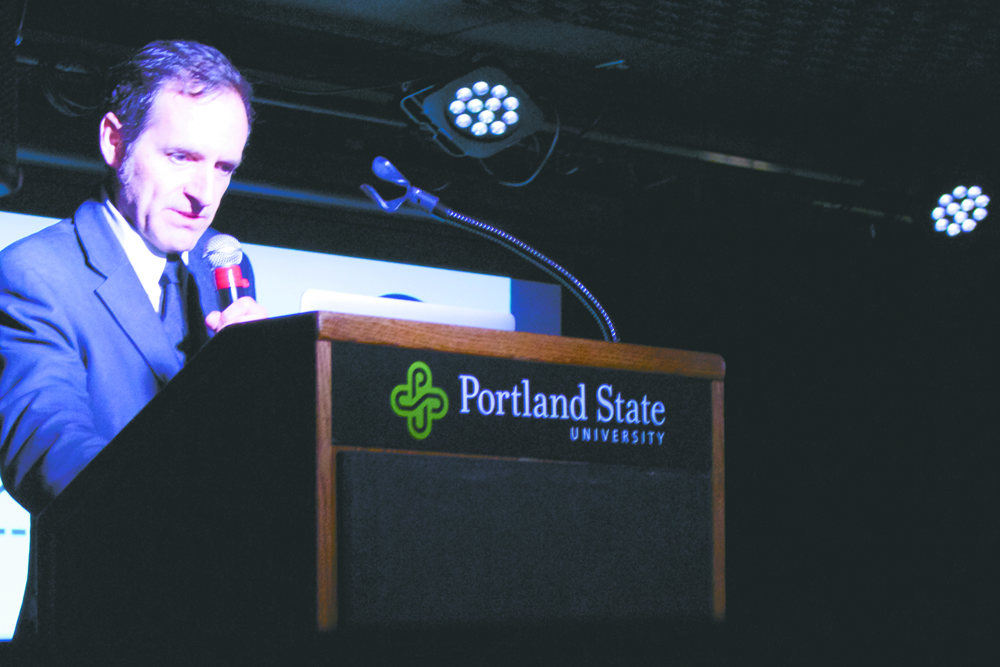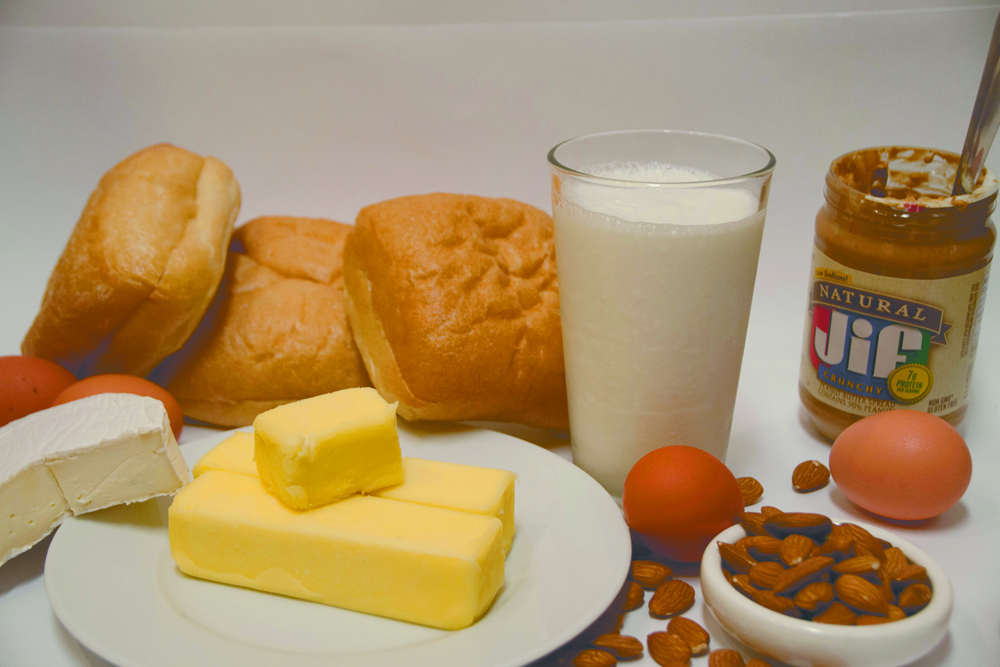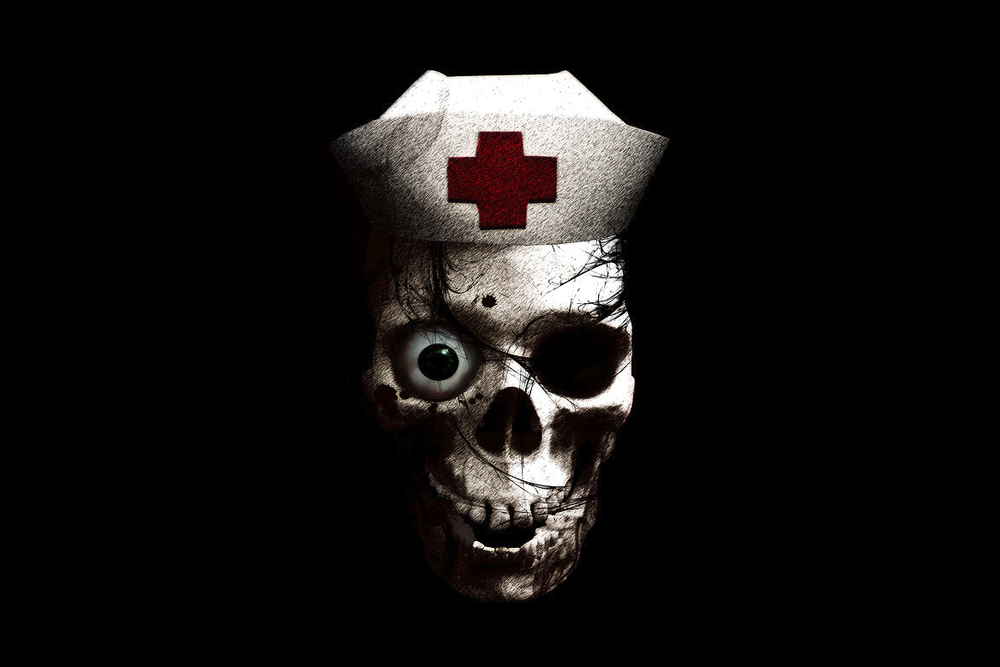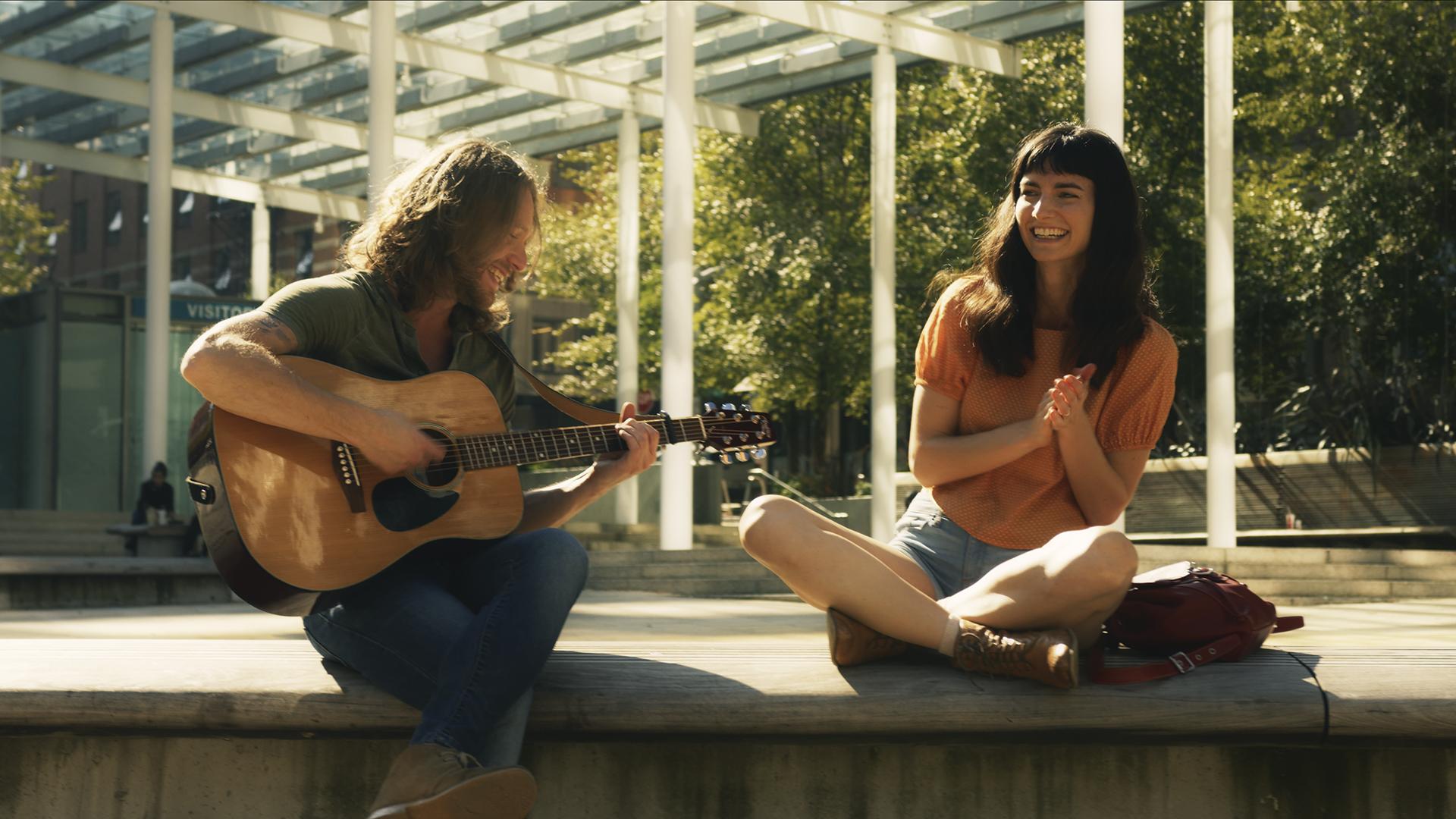Cory McAbee spoke to students and guests at Smith Memorial Student Union on Tuesday, Oct. 6, regarding the evolving concept of crowdsourcing creative collaborations. McAbee held no reserve in sharing his experiences of engaging the eager and setting them free to create what they will, using all artistic avenues.
“This project is crowdsourcing,” McAbee said. “But not crowdsourcing financing. This is crowdsourcing talent.”
McAbee’s current work and first album, “Small Star Seminar,” is a difficult endeavor to categorize under traditional labels. It’s a movie. It’s a blog. It’s a soundtrack, graphic novel, chapter patches and tri-fold brochure. It’s beyond the reach of any one artist, and that is perfectly all right with the idea’s founder.
McAbee is a pioneer of the free and open exchange of creative energies.
“If it is of its time, it is organic,” McAbee said. “Either I read it or I dreamt it. The truth is more important than the facts. I was thinking in retro thought. For younger people, the internet is organic, part of their lives. What does organic mean now? This led me to a new way of thinking, working with things I felt were organic for this time.”
The director/musician/visionary offered insights to Portland State students interested in initiating a crowdsourced collaborative of their own.
“Two important things that are necessary: getting people’s emails and getting their locations. With this global collaborative thing, you can section off your areas and know who you need to talk to,” McAbee said.
Through utilization of a bevy of communications media—Patreon, Mixlr, MailChimp and JotForm, to name a few—McAbee shared his ideas and put them in the hands of anyone who would care to join him, anywhere in the world.
“I wanted to make a global collaborative for anyone who wanted to work with me. A nice outsider name was ‘Captain Ahab’s Motorcycle Club.’ The name itself allows people to create visuals and opens itself up to graphics. Participation constitutes membership,” McAbee said.
McAbee then described the whirlwind of feedback he received in response to the free license his experiment allowed. Colorful, innovative chapter patches from Switzerland, Russia, Australia—animated shorts from Germany—the list grew on as the project began to take on a life of its own.
“The kindness that rolls off of people is unbelievable and it really makes me happy to work with them,” McAbee said. “People step up and they’re nice, and the jerks just don’t get involved. With all the bad things happening in the world, to do something like this and know that you have three friends in any given city…that’s a good thing. Everybody who works on it is supportive of it because it is all ours.”
McAbee explained that people are volunteering to create their own ideas. He encourages them to make what they think is beautiful.
“The stuff we’ve been getting is amazing,” McAbee continued. “Everything starts piecing itself together as we had hoped.”
He went on to explain that the idea of crowdsourcing creative collaboration is not exactly new. He cited the musical act the Grateful Dead and their unheard-of practice of allowing concertgoers to record their shows and trade them freely amongst themselves in the 1970s.
“What it was really about was the peripheral. [The Grateful Dead] did something different, empowered their fans and let people do things record companies normally wouldn’t do: record their concerts,” McAbee said.
The fans transformed from consumers to collaborators because they were bootlegging the music. It was an underground movement that continued to involve more people.
McAbee placed emphasis on how important it is to communicate and collaborate with others. This is why Patreon is such a vital resource for crowdsourcing.
“The reason I like Patreon is that people can help,” McAbee said. “And people can also communicate with each other. You can post PDF files to download; it’s a great library. It’s a good place to put things when you want people to go and download quality files. They have really good audio uploads.”
After utilizing mobile distribution to share a short film he produced through the Sundance Film Festival in 2007, McAbee did the same for his feature-length film The American Astronaut in 2009. The resulting success ignited a spark that, by his own choice, has spiraled out of any one person’s control.
This same visionary means of collaboration inspired event coordinator and PSU film student Shannon Neale to recruit McAbee to campus.
“There were five or six student organizations that collaborated on this. I think anybody that has an idea of some event or speaker they want to bring to PSU, get your ducks in a row and it will happen,” Neale said. “You have a greater reach than you think, and things are more within your reach than ever.”





